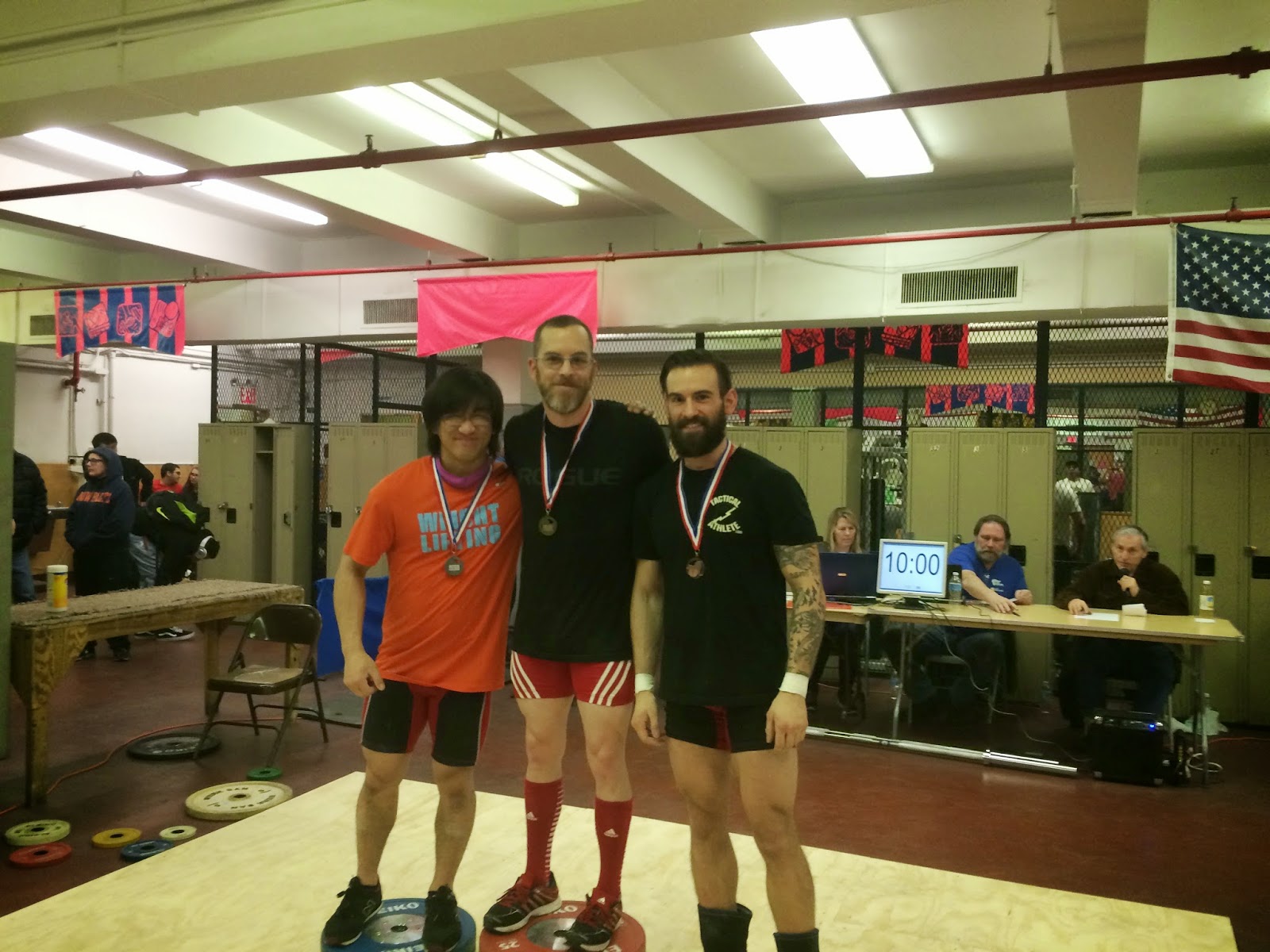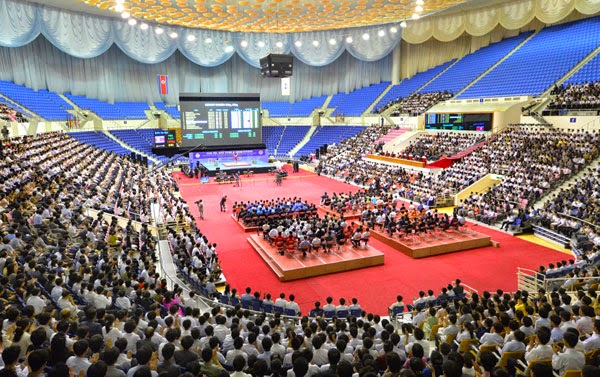So seeing as though several of the Crossfit Hoboken team (myself included) are competing in the Lost Battalion Hall Classic Weightlifting Tournament next weekend (3/21/2015) I thought I would write about the format of a weightlifting tournament today.
Weightlifting tournaments are a very formal, structured affair. There is a certain hierarchical class system at play. At the top of the list are the Judges. They are the ones that are going to decide whether or not to give you three little white lights, or three little red lights. So naturally they are the top of the heap. They can go anywhere, and pretty much do anything .Next are the lifters. The entertainment for the day. The competitors battling it out for the precious few medals. Last, and certainly not least we have the spectators. The friends, the family, and the team of those who will be competing.
So first things first. Two hours before the event you will weigh in. You will head into the change room when your name is called and be faced with one of said Judges. They will ask you to provide your USA weightlifting Membership card, and a form of ID. After which you are free to weigh. You can weigh in tights, underwear, or butt ass naked. considering the fact that a lighter lifter than yourself merely has to equal your lift in order to beat you, I always go "Ah Natural" I have both lost and won medals based on the point zero, zero, zero that is added by weighing with clothing on. But each unto their own.
Once you have weighed in, you will change and gather in the warm up hall. The only people allowed in the warm up hall are the lifters and their coaches. This is not a social gathering, friends and family are not permitted in the warm up area. You generally have 2 hours after your weigh in before your competition starts. Every lifter has their own way with spending this time. Some sleep (me) some listen to music on their earphones, and some pace around outside. Everyone has their own way of preparing themselves.
The first hour after weigh in is for the lifters to do as they please. The last hour is the coaches responsibility. getting those lifters who need extra time to stretch and warm up ready. Around 15 minutes before the scheduled start time the announcers will ask all of the lifters scheduled for the upcoming session to make there way to the stage. Once all of the lifters are assembled, they will announce each lifter by name. Giving the spectators an opportunity to see the full line up before the event. Once the line up has happened the lifters have 10 minutes before the first attempt is called on the platform.
Competitions are run on a rising bar format. Meaning the lifters starting with the lightest weights will lift first, and those starting with the heaviest weights will finish last. At this point a lifter and his coach should have a very good indication of where and when the athlete will be lifting in the session. It is the coaches responsibility to count the number of attempts before their lifters attempts, and to communicate any changes with the judges back stage. An athlete should not be running over to the judges table and making changes (unless said athlete has no coach) The coaches job is to prepare the athlete and communicate changes with the judges, so that the athletes can focus on what they came to do, lift the best they can.
Most athletes have a tendency to want to start to high for their opening weight. Your first (of three) attempts needs to be a sure thing, a weight you do not miss. First and foremost you need to get yourself on the leader-board. In general a coach and an athlete will discuss what their opening weight will be well before the tournament. Take it from someone who has Bombed out of several international tournaments, don't start to high.
Once your name has been called you have exactly 1 minute to get to the platform and make your lift. When walking up to the platform it is considered etiquette to walk on to the platform from the rear. If you like you can acknowledge the judges with a simple bow. This can go a long way when it comes to controversial decisions. Showing them respect before you lift is a sign of a mature and confident lifter. While the crowd might like the show-boater, I can guarantee you when he gets backstage he will be sitting on his own. When you are on the platform, try your best to block out the audience. Pick a spot on the wall, a light, anything and focus on that throughout your lift. Also remember a lifting platform is substantially bigger than a training platform. You have plenty of space, just don't walk off the platform. Most important of all, make sure you wait for the Judges signal "down" before you drop the weight, or you will be given red lights.
Once the competition is done make sure to shake hands with all of your fellow competitors and congratulate them on their day, no matter where they placed. This is another integral part of the culture. We all come to compete, no matter how well we did, or didn't do, acknowledge your peers and fellow competitors. Sportsmanship, and camaraderie means more than medals and trophies.
I wish everyone that is competing the best of luck. I will be there as a fellow competitor, coach, and spectator.











































